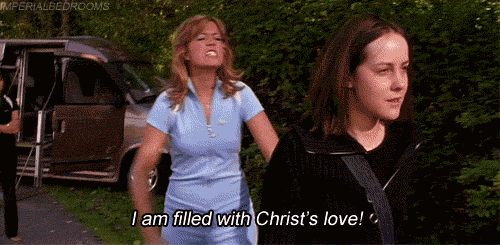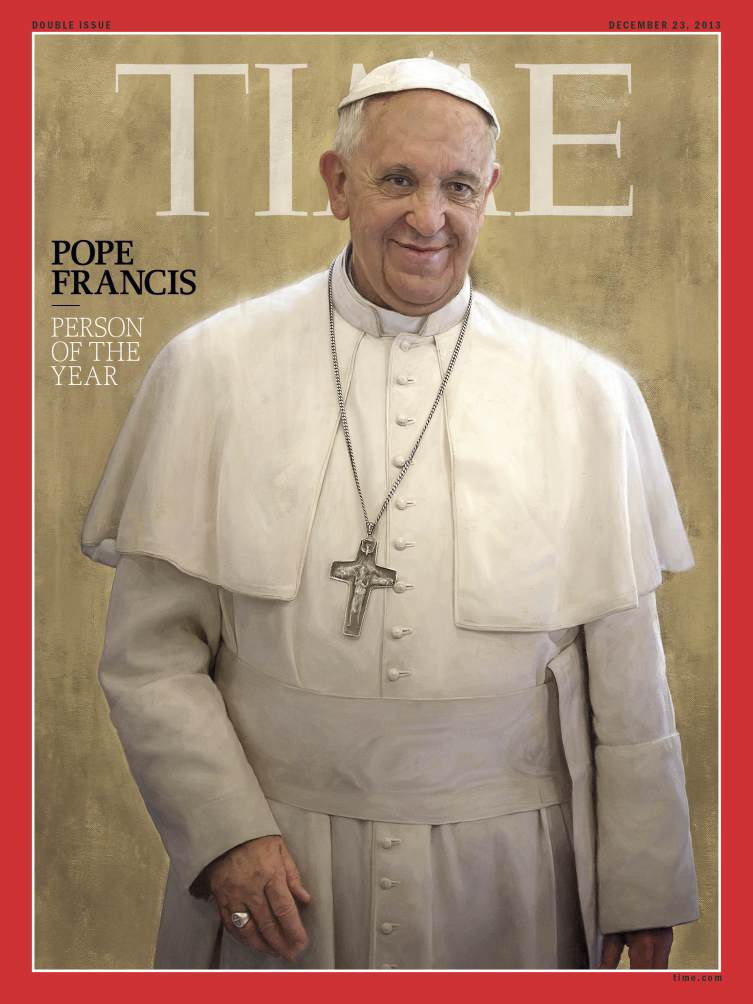
I’ve been reading and re-reading Kathleen Norris’s Amazing Grace for almost a year now. I pick it up often when I find myself distressed. It’s prose that reads like poetry, which soothes my mind, and it’s full of beautiful reflections on a life of faith, which soothes my soul.
Her musings on conversion radically altered the way I understand conversion.
The word ‘conversion’ comes from the Latin for ‘to turn around’. Thus it denotes a change of perspective but not of essence: a change of view but not location.
Conversion should never be simple switch, though, a one-time change, not for any of us, not ever. That’s because our essence does not change with a conversion, but our understanding of everything, even ourselves, shifts. Constantly. It’s a life-long metamorphosis, the process by which we allow Christ to mold us into that image of himself which each one of us was uniquely created to reflect. Becoming more like Christ doesn’t mean that we will be gradually assimilated into Christ Borg, though. We’ll never all think and move and act and speak identically, because our essence remains. There’s St. Francis and then there’s St. Catherine of Siena. There’s Blessed Imelda and then there’s St. Augustine. There’s St. Thomas Aquinas and then there’s St. Joseph of Copertino…and we none of us have all the right answers, all the right attitudes, all the Christ. Our challenge is to allow ourselves to seek, find, and be transformed into what Christ wants, not what we want. That’s why it’s so hard.
But as hard as it is to allow ourselves to be transformed into something we might not want to become, I think it’s much harder to watch someone else gradually transform into something that doesn’t fit our perception of what God wants…especially if that transformation includes turning against what we hold dear, what we cherish, and what we believe to be the right way. As Kathleen Norris put it, “Conversion is frightening to oneself, and to others, precisely because it can seem like a regression.”
Lately, there have been many people expressing the deep fear that the Church is regressing under Pope Francis. The happy-clappy sentimentalism and moral relativism associated with the post-Vatican II era have taken on a looming, oppressive aspect in the blogosphere lately, like the Ghost of Catholicism Past, Catholicism Still Sometimes Present, and Catholicism Future all in one. It seems like the tentative new springtime the Church experienced under Pope Benedict is being ground back into the choking dust of modernity, interview by blasted interview.
There is a chapter in Amazing Grace entitled, “Inheritance: Blessing and Curse,” and nothing could be truer. When I read it the first time, I realized how much I was shutting out by just disavowing my Evangelical upbringing. There were things about it that I no longer agree with, or I wouldn’t be Catholic. But I also wouldn’t be Catholic if I hadn’t been raised Evangelical.
I say that with certainty, because I know myself. I know my self-righteous tendency to dismiss everyone who even hints of self-righteousness. It was essential that I be raised with images of Christians who weren’t all
I saw alot of that growing up. But I also saw alot of genuinely Christ-like people…too many for me to dismiss all of Christianity. This kind of Christian isn’t just confined to Evangelicalism, either. There are plenty of them in the Catholic camp as well, just as there are plenty of cafeteria Catholics. I could give you a list dividing nearly everyone in the blogosphere into little sub-categories under those headings, actually. Which is why it was so important for me to own my inheritance…in many ways, I’m still there. My view has changed, but not my location.
But it’s far less pleasant-it can feel like a curse-to include in my welcome the difficult ancestors: the insane, the suicides, the alcoholics, the religiously self-righteous who literally scared the bejesus out of me when I was little, or who murdered my spirit with words of condemnations. Abel is welcome in my family tree, but I’d just as soon leave Cain out. Yet God has given me both, reminding me that the line in Psalm 16, “welcome indeed the heritage that falls to me,” can be a tough one to live with. If, as Paul says, “all things work together for the good of those who love God” (Rom.8:28), then in giving me a mixed inheritance, both blessing and curse, God expects me to make something of it. Redeem the bad, and turn it into something good.
(Kathleen Norris, Amazing Grace)
I was reminded of this passage when I was reading Pat Archbold’s post yesterday at the National Catholic Register, Pope Traumatic Stress Disorder. He brought up a lot of really good points. The Church’s recent history is unpleasant at best…the contraceptive mentality, abortion, the sexual abuse scandal…the Church’s closet is fairly bursting with skeletons that wrought widespread damage, led countless souls astray, and brought a whole culture to its feet in outrage. I don’t want to go back there either, even though I wasn’t Catholic then. No one wants to go back there. And he’s right to entertain the possibility that “the spirit of the times can overwhelm the truth contained in the Pope’s rhetoric.”
But those post-Vatican II days that wrought so much damage are part of our spiritual inheritance. And with all the bad they brought, they brought a little good, too. At the very least, Vatican II brought the vernacular to the Mass. I would never have converted if it weren’t for the truth and beauty of the liturgy, and if it were still in Latin I would never have heard it. I know many converts whose journey began by hearing the words “Lord, I am not worthy to receive you, but only say the words and my soul shall be healed.” And though the damage done by the widespread misapplication of Vatican II is not negligible, the way has been paved for good to be found anew. The rediscovery of life without contraception, for instance, by couples entrenched in a contraceptive mentality is a beautiful witness to the reality of a life of faith…a faith willing to face death, even.
I worry because those most encouraged by the Pope’s word and style are those most vehemently opposed to the Church and her mission. I worry that Pope Francis, like Pope Paul VI, may look back on his pontificate and wonder what went wrong.
I understand what he’s saying, and I understand that fear. But I find myself encouraged by that first sentence. He’s right, many of those most encouraged by the Pope are also those most vehemently opposed to Church teaching, at least (I don’t think they’re all bitter anti-Catholics.) That doesn’t necessarily mean Pope Francis is here to lead us into a brand new wasteland of electric guitars and laser shows at every Mass. I think a lot of what happens during his pontificate depends on us. There wasn’t an internet sixty years ago. People weren’t able to find like-minded, strong Catholics and figure out the best way to stem the shift of the cultural tide. We can. We can watch all this unfold and be there to ensure that the spirit of the times does not overwhelm the truth. The Pope is giving us an opening. He’s grabbed the secular culture by the ear and made them go, “huh. Maybe those Catholics aren’t such nutters after all.” Now it’s time for us to show them that, in fact, we are such nutters, and why. But we can only do that through constant conversion.
My conversion to Catholicism wasn’t a rejection of what came first, it was a continuation of it. I can’t tear down my past. I can only build on it. Vatican II happened, everything that came after it happened, and we really haven’t moved beyond all that much. In many ways, we’re still paralyzed by the sins that swept through the Church back then…they’re just taking different forms. But all of it is part of our spiritual inheritance. Pope Francis, like it or not, is part of our spiritual inheritance. We can stand around wringing our hands about how much he’s messing up by saying things that are being misinterpreted, or we can build on the openings he gives us and correct the misinterpretation. We know Pope Francis is a son of the Church, and we know he has said nothing contradictory to Church teaching, so in the end whether he turns out to be a blessing or a curse for the Church depends largely on us.
The Church is and always will be steadfast, but she is made up of sinners who should be constantly converting. It was the constant conversion that has been missing, as Pat says, “top to bottom.” If the church had been constantly converting, truth would not have been ignored. Children would not have been abused, aborted, and contracepted away. But they were, and that legacy is part of our inheritance. It’s ours to bear. It seems unfair, but we own that debt now. We are the only ones who can pay it. The church, all of us, must persevere in the tentative, hesitant conversion that has begun, at peace in the knowledge that
“…we do not suddenly change in essence, magically becoming new people, with all our old faults left behind. What happens is more subtle, and to my mind, more revealing of God’s great mercy. In the process of conversion, the detestable parts of our selves do not vanish so much as become transformed. We can’t run from who we are, with our short tempers, our vanity, our sharp tongues, our talents for self-aggrandizement, self-delusion, or despair. But we can convert, in its root meaning of turn around, so that we are forced to face ourselves as we really are. We can pray that God will take our faults and use them for the good.
(Kathleen Norris, Amazing Grace)











